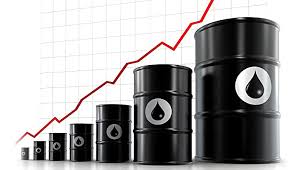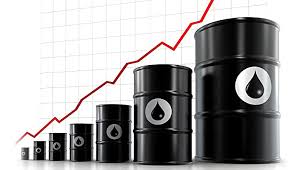
Saudi Arabia's Minister of Energy, Industry and Mineral Resources, Khalid A. Al-Falih, said in a TV interview that the Saudi-led effort to isolate Qatar won't impact the price of oil much.
"Within the energy markets, there is no change," Al-Falih said on the sidelines of meetings in Kazakhstan over the weekend.
Earlier this month, ties to tiny Qatar were abruptly cut off by several Saudi-led Arab states.
According to an Al Jazeera report, breaking all ties to the Muslim Brotherhood and expelling all members of Hamas, ending relations with Iran, are among the demands that Saudi Arabia has been making of Qatar. Broadcaster Al Jazeera, which came under cyber attack last week, be shut down by Qatar, Saudi Arabia led countries also demanded.
Saudi Arabia and President Donald Trump, who recently visited Saudi Arabia in his first foreign trip, had agreed to new military contracts and a broader economic relationship and the catalyst for the rift was an alleged statement by Qatar's emir criticizing that event.
Speculations that the row will spill more broadly into the global gas market were raised last week, as two Qatari LNG shipments, believed to be U.K.-bound, abruptly changed direction in the Gulf of Aden on Thursday, even though so far, the dispute has had little impact in energy markets.
But he didn't expect much of a market impact, Al-Falih said.
"Qatar is a member of the OPEC organization and is a signatory of the 24-member agreement that has just been extended," he said. "We trust that they will continue to abide, but their overall contribution in terms of the cuts is rather insignificant in the overall scheme of things."
After the November deal failed to fully clear a global oversupply in oil, which has been keeping prices relatively low, late last month, OPEC said it would extend an 1.8 million-barrel-a-day cut to oil output by nine months, though March 2018. Also signatory the deal are some non-OPEC producers.
He hoped that the tensions would resolve quickly, Al-Falih added.
"But it's not in our hands, it's within the control of the Qatari governments," he said. "We think that the neighbors of Qatar, not only in the GCC, but elsewhere in the Arab world and in elsewhere in the global community, have made it clear what those conditions are."
Despite a market swoon last week on unexpectedly high inventory data, overall, Al-Falih expected that the deal to cut output would work to clear oil oversupply.
Confounding analysts' estimates for a 3.5 million-barrel decline and sending oil prices tumbling, the Energy Information Administration said in the middle of last week that oil stockpiles in the United States surged by 3.3 million barrels in the week ended June 2.
"Weekly data goes up and down. Sentiments in the financial markets of course swing like a pendulum. But that doesn't change the fundamentals," Al-Falih said. "What we can influence as oil producers is the fundamentals, the level of supply which will result in drawing down the inventories."
The U.S. spiking higher in inventories was not a matter of concern for the minister.
"We've seen the U.S. market pull oil from around the world, which has resulted last week in higher inventory, but it's also created shortage elsewhere," he said. he noted that around 50 percent of floating storage has been liquidated into global markets and OECD inventories have been falling by around 80 million barrels a day.
(Source:www.cnbc.com)
"Within the energy markets, there is no change," Al-Falih said on the sidelines of meetings in Kazakhstan over the weekend.
Earlier this month, ties to tiny Qatar were abruptly cut off by several Saudi-led Arab states.
According to an Al Jazeera report, breaking all ties to the Muslim Brotherhood and expelling all members of Hamas, ending relations with Iran, are among the demands that Saudi Arabia has been making of Qatar. Broadcaster Al Jazeera, which came under cyber attack last week, be shut down by Qatar, Saudi Arabia led countries also demanded.
Saudi Arabia and President Donald Trump, who recently visited Saudi Arabia in his first foreign trip, had agreed to new military contracts and a broader economic relationship and the catalyst for the rift was an alleged statement by Qatar's emir criticizing that event.
Speculations that the row will spill more broadly into the global gas market were raised last week, as two Qatari LNG shipments, believed to be U.K.-bound, abruptly changed direction in the Gulf of Aden on Thursday, even though so far, the dispute has had little impact in energy markets.
But he didn't expect much of a market impact, Al-Falih said.
"Qatar is a member of the OPEC organization and is a signatory of the 24-member agreement that has just been extended," he said. "We trust that they will continue to abide, but their overall contribution in terms of the cuts is rather insignificant in the overall scheme of things."
After the November deal failed to fully clear a global oversupply in oil, which has been keeping prices relatively low, late last month, OPEC said it would extend an 1.8 million-barrel-a-day cut to oil output by nine months, though March 2018. Also signatory the deal are some non-OPEC producers.
He hoped that the tensions would resolve quickly, Al-Falih added.
"But it's not in our hands, it's within the control of the Qatari governments," he said. "We think that the neighbors of Qatar, not only in the GCC, but elsewhere in the Arab world and in elsewhere in the global community, have made it clear what those conditions are."
Despite a market swoon last week on unexpectedly high inventory data, overall, Al-Falih expected that the deal to cut output would work to clear oil oversupply.
Confounding analysts' estimates for a 3.5 million-barrel decline and sending oil prices tumbling, the Energy Information Administration said in the middle of last week that oil stockpiles in the United States surged by 3.3 million barrels in the week ended June 2.
"Weekly data goes up and down. Sentiments in the financial markets of course swing like a pendulum. But that doesn't change the fundamentals," Al-Falih said. "What we can influence as oil producers is the fundamentals, the level of supply which will result in drawing down the inventories."
The U.S. spiking higher in inventories was not a matter of concern for the minister.
"We've seen the U.S. market pull oil from around the world, which has resulted last week in higher inventory, but it's also created shortage elsewhere," he said. he noted that around 50 percent of floating storage has been liquidated into global markets and OECD inventories have been falling by around 80 million barrels a day.
(Source:www.cnbc.com)














